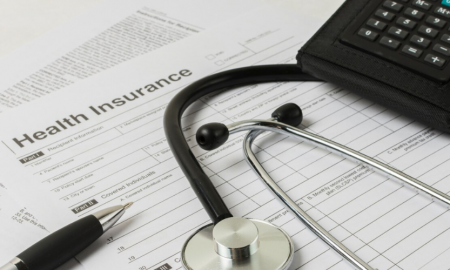
Coping With Traumatic Stress Reactions – PTSD

Post-Traumatic Stress Disorder (PTSD) is a complex mental health condition that sometimes develops in the aftermath of a traumatic event. It affects numerous individuals globally, often resulting in considerable distress and hindering one’s ability to lead a fulfilling life.
Managing the aftermath of traumatic stress reactions, commonly associated with PTSD, involves a comprehensive approach encompassing understanding, support, and diverse therapeutic interventions.
Comprehending PTSD
PTSD does not indicate weakness or an inability to cope with life’s adversities; rather, it represents a natural response to an overwhelmingly traumatic incident. Events triggering PTSD can range from combat and sexual assault to natural disasters, accidents, or exposure to violence.

Rdne Stock Project/ Pexels | PTSD is a psychiatric disorder with symptoms such as intrusive thoughts, flashbacks, nightmares, and severe anxiety following exposure to a traumatic event
When someone experiences such an event, their brain and body react to the perceived threat by releasing stress hormones, which can lead to a fight-or-flight response.
In some cases, the brain’s ability to process the trauma becomes overwhelmed, causing the memory of the event to be stored in a fragmented and distressing manner. This is where PTSD symptoms can arise, often months or even years after the initial trauma. Common symptoms include intrusive thoughts, flashbacks, nightmares, emotional numbness, and heightened arousal.
Coping Strategies for PTSD
If you suspect you or someone you know may be experiencing PTSD symptoms, seeking out professional help is key. Mental health professionals like psychologists and psychiatrists possess the expertise to effectively diagnose and treat PTSD. Treatment options typically involve psychotherapy, medication, or a combination of both.

Rdne Stock Project/ Pexels | PTSD is treatable, seek professional help
Psychotherapy Options
One of the primary therapies for PTSD is Cognitive-behavioural therapy (CBT). This approach assists individuals in identifying and altering negative thoughts and behaviors associated with traumatic experiences. Eye Movement Desensitization and Reprocessing (EMDR) is another effective therapy that involves guided eye movements during discussions about traumatic memories to help process and reframe these experiences.
Medication Considerations
In certain cases, antidepressants and drugs like selective serotonin reuptake inhibitors (SSRIs) are recommended to alleviate depression and anxiety linked to PTSD. To determine the most suitable medication, dosage, and duration, following the advice of a healthcare professional is crucial.
Self-Care and Lifestyle Changes
Apart from professional treatment, self-care practices and lifestyle adjustments can significantly aid in managing PTSD symptoms:
Regular Exercise: Engaging in physical activity can reduce stress, elevate mood, and promote better sleep.
Healthy Diet: Maintaining a balanced diet positively impacts overall well-being and may assist in managing mood swings and anxiety.
Mindfulness and Relaxation Techniques: Practices like meditation, deep breathing, and progressive muscle relaxation can alleviate physiological stress symptoms and foster emotional resilience.

Alex Green/ Pexels | Increasing awareness and reducing stigma around PTSD is essential
Limit Alcohol and Drugs: Substance abuse can exacerbate PTSD symptoms, hindering recovery. Seeking support for substance use issues is vital.
Building a Support Network: Sharing experiences and feelings with trusted friends and family members can offer emotional solace and diminish feelings of isolation.
Managing Triggers: When possible, minimizing exposure to situations or environments that trigger PTSD symptoms can be beneficial.
Education and Self-Help Resources
Understanding PTSD and its effects is empowering. Numerous self-help resources, books, websites, and support groups are available for individuals and their loved ones. Learning about PTSD can help you feel more in control and less isolated.
More in Mental Health
-
`
Hair & Makeup Designer Sarah Rubano Talks Turning Mia Goth Into Pearl
Transforming an actor into an unrecognizable character is no small feat, and Mia Goth’s Pearl makeup in the hit movie “Pearl”...
December 17, 2024 -
`
The Physical Signs of Hunger and How Mindful Eating Makes a Difference
Hunger is one of the most basic yet essential signals our body uses to communicate its need for energy. However, many...
December 15, 2024 -
`
Why Did Chris Pratt Call Anna Faris Before Proposing to Katherine?
Chris Pratt, the beloved star of “Guardians of the Galaxy,” made headlines when he revealed that he called his ex-wife, Anna...
December 3, 2024 -
`
6 Proven Tips to Tackle Insurance Claim Denials Successfully
Claim denials are a common hurdle for healthcare providers and professionals, even for those who follow the necessary procedures to avoid...
December 1, 2024 -
`
5 ‘Bad’ Fitness TikTok Trends You Shouldn’t Follow
TikTok has become a haven for creative fitness advice. But not all trends are worth your time or your health. From...
November 23, 2024 -
`
Does Drinking Water Affect Adrenal Hormones?
Drinking water is often seen as a simple way to stay hydrated, but it has deeper effects on our body than...
November 14, 2024 -
`
Why We Feel the Loss of Celebrities So Deeply?
Celebrity grief might sound strange at first. After all, most of us have never met these famous figures in person, yet...
November 5, 2024 -
`
Are High Deductible Insurance Plans as Ideal as They Appear to Be?
High deductible insurance plans have been a hot topic for years, especially as healthcare costs continue to rise. For many Americans,...
October 31, 2024 -
`
How Training Load Data Can Transform Your Exercise Routine
Tracking progress during workouts is challenging. Simple metrics like mileage or time don’t show the whole picture. Understanding the overall effort...
October 26, 2024















You must be logged in to post a comment Login